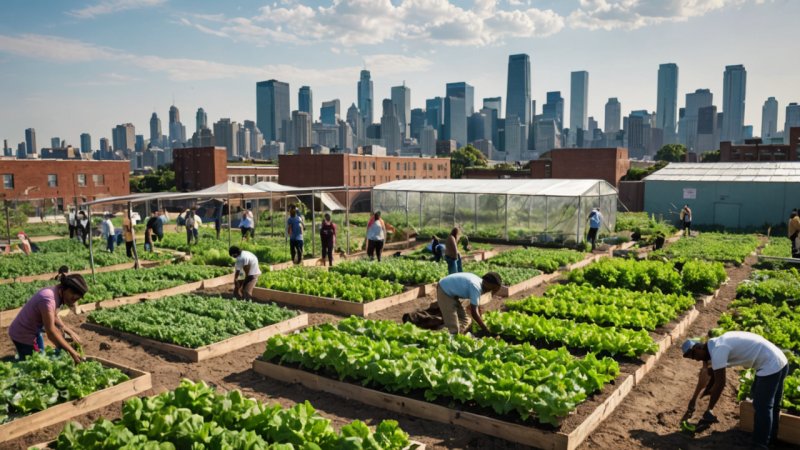What is urban farming?
Urban farming refers to the practice of cultivating, processing, and distributing food in or around urban areas. It can take many forms, including community gardens, rooftop farms, vertical farms, and indoor agriculture. Urban farming aims to enhance food security, promote sustainability, and strengthen community ties.
Why is urban farming important?
Urban farming plays a crucial role in addressing several pressing issues:
- Food Security: It helps provide fresh produce to urban populations, especially in food deserts.
- Environmental Benefits: Urban farms can reduce the carbon footprint associated with transporting food.
- Community Engagement: They foster community involvement and social cohesion.
- Education: Urban farms serve as educational platforms for teaching sustainable practices.
How can individuals get involved in urban farming?
There are several ways to participate in urban farming initiatives:
- Join a Community Garden: Many cities have community gardens where you can volunteer or rent a plot.
- Start Your Own Garden: If you have space, consider starting your own small garden at home.
- Support Local Farmers: Buy produce from local urban farms or farmers' markets.
- Educate Others: Share your knowledge about urban farming with friends and family.
What are the challenges facing urban farming?
While urban farming has many benefits, it also faces several challenges:
- Land Access: Securing land for farming in urban areas can be difficult and expensive.
- Regulatory Barriers: Zoning laws and regulations may restrict farming activities.
- Funding: Limited financial resources can hinder the establishment and sustainability of urban farms.
- Knowledge Gap: Many urban residents may lack the skills or knowledge needed for successful farming.
What technologies are shaping the future of urban farming?
Innovative technologies are transforming urban farming:
- Hydroponics and Aquaponics: These soil-less farming methods allow for efficient use of space and resources.
- Vertical Farming: This method maximizes production in limited spaces by stacking crops vertically.
- Smart Agriculture: IoT devices and sensors can monitor plant health and optimize growing conditions.
- Renewable Energy: Solar panels and wind turbines can power urban farms sustainably.
What role does urban farming play in climate change mitigation?
Urban farming contributes to climate change mitigation in several ways:
- Carbon Sequestration: Plants absorb carbon dioxide, helping to reduce greenhouse gases.
- Reduction of Food Miles: Local food production decreases the need for long-distance transportation.
- Waste Reduction: Urban farms often utilize organic waste for composting, reducing landfill contributions.
- Water Conservation: Techniques like rainwater harvesting can minimize water usage.
How does urban farming promote social justice?
Urban farming is a powerful tool for promoting social justice:
- Access to Fresh Food: It helps improve access to nutritious food in underserved communities.
- Job Creation: Urban farms can create employment opportunities for local residents.
- Empowerment: Involving communities in farming initiatives empowers them to take control of their food sources.
- Education and Training: Urban farms can provide training programs to equip individuals with valuable skills.
What is the future outlook for urban farming?
The future of urban farming looks promising, with increasing interest and investment in sustainable practices. As cities continue to grow, the need for local food production will become even more critical. Innovations in technology and community engagement will likely drive the expansion of urban farming initiatives, making them an integral part of urban planning and development.
In conclusion, urban farming represents a transformative approach to food production that addresses food security, environmental sustainability, and community empowerment. By participating in urban farming efforts, individuals can contribute to a healthier, more equitable future.






